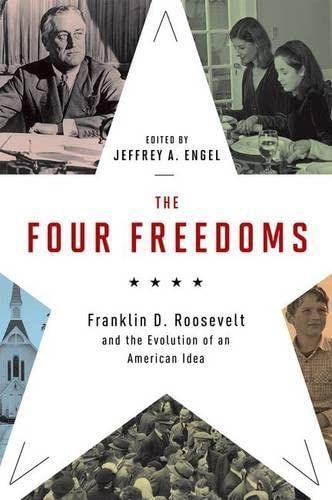
The Four Freedoms Franklin D. Roosevelt and the Evolution of an American Idea
The specter of global war loomed large in President Franklin Roosevelt's mind as 1941 began. He believed the United States had a role to play in the battle against Nazi and fascist aggression already underway in Europe. Isolationists, political opponents, and arguably the majority of Americans disagreed. The wounds of the First World War had not yet fully healed, while the Great Depression largely still raged. The words he used to rally the nation towards war ultimately defined not only what Americans fought for in World War II, but how they defined themselves as a people for generations after. Roosevelt framed America's role in the conflict, and ultimately its role in forging the post-war world to come, as a question of freedom. Four freedoms, to be exact: freedom of speech, freedom from want, freedom of religion, and freedom from fear. His words inspired, but more importantly his four freedoms formed the basis for how ensuing generations of Americans conceive of liberty for themselves and for the world.0Six scholars come together in this volume to explore how each of Roosevelt's freedoms evolved over time, for Americans and for the wider world, while additionally showing why Roosevelt spoke as he did, and how our understand of his words has evolved over time. 'The four freedoms: Franklin D. Roosevelt and the evolution of an American idea' explores this moment of history, and the evolution of each of the four freedoms from those dark days of 1940 to the present day.